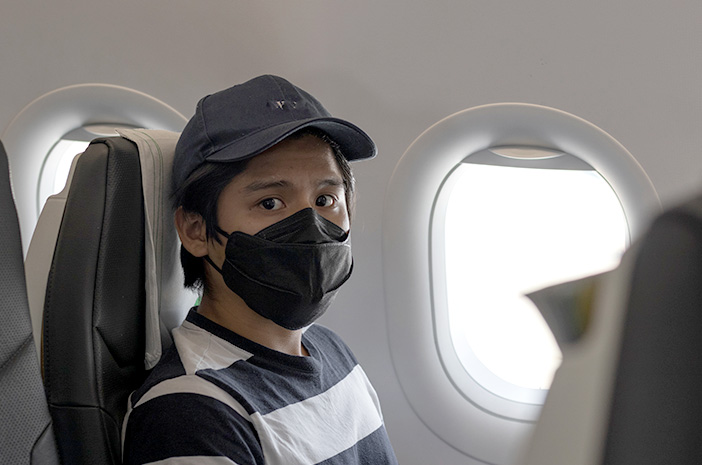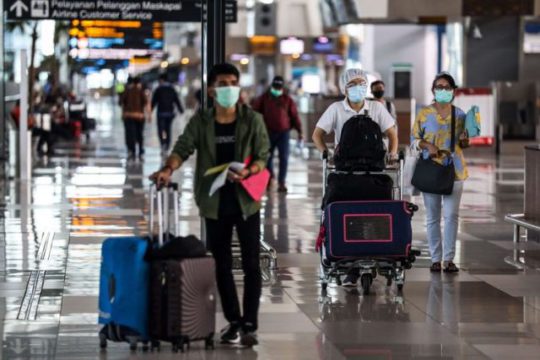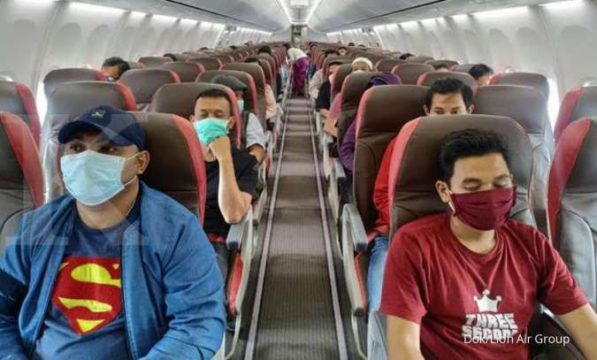Air passengers traveling between Java and Bali are no longer required to under an RT-PCR Swab Test providing they can present official certification that they are fully vaccinated – having undergone both an initial and second inoculation against COVID-19.
The revised requirements for Java-Bali air passengers are outlined in Instructions from the Minister of Home Affairs Number 38 of 2021 regarding the Limitation of Public Movements for the Public in Category 4, 3, and 2 COVID-19 zones in Java and Bali.
The latest revision in travel regulations took effect from 31 August 2021.
Under the revised regulations, domestic air travelers between locations in Java and Bali are required to show proof of at least the first of two COVID-19 vaccinations.
Air passengers who can prove having received both the first and second COVID-19 vaccination (i.e., “fully vaccinated”) are allowed to present a certificate for a negative and less costly negative Rapid Test Antigen performed within 24 hours of their departure flight.
Air passengers who have certified proof of having received only the first of two COVID-19 injections are only required to undergo a PT PCR Test performed within 2 x 24 hours of their departure flight.
These requirements apply for air passengers living in COVID-19 categorized 4, 3, and 2 areas of Java and Bali.
Meanwhile, domestic air passengers from areas outside Java and Bali to destinations on the islands of Java and Bali, or the reverse, must present proof of at least one coronavirus injection. Air passengers must also show proof of a negative RT-PCR Test performed within 2×24 hours of their departure.
It should be noted that the requirement for a “negative” rapid test (as opposed to an RT-PCR Test) only applies when traveling between airports in Java and Bali for people who are “fully vaccinated” – having received two injections.
The public is reminded to avoid public gatherings during the continuing limitations on public movements (PPKM) and always to wear a surgical mask in any social setting. People electing to wear a plasticized face shields must also wear a surgical mask.
The Minister of Maritime Affairs and Investment, Luhut Binsar Pandjaitan, who also serves as the National COVID-19 Czar, claims that the rules restricting public movements (PPKM) have yielded positive results. Based on evaluations carried out on the islands of Java and Bali, regions/cities rated at the lowest alert level of Category 2 have risen from 10 to 27. Category 3 regions/cities have also increased from 67 to 76. Conversely, those regions/cities with the highest Category 4 rating have reduced, improving from 51 regions/cities to just 25.
As reported by Kompas.com, Luhut said that agglomerated regions of Indonesia are demonstrating a significant decline in new cases. Malang Raya and Solo Raya are now placed in the lower Category 3 list. With the implementation of PPKM measures on Java and Bali, the agglomeration areas that have improved to a Category 3 status in the past week are Jabodetabek (Jakarta, the Thousand Islands, Bogor, Depok, Tangerang, and Bekasi), Bandung Raya, Surabaya Raya, Malang Raya, and Solo Raya.
Meanwhile, Semerang Raya has improved from Category 3 to Category 2.
The Special Administrative District of Yogyakarta and Bali remain classified at the highest level of alert – Category 4. Luhut said he is optimistic that Yogyakarta will soon be reclassified from Category 4 to Category 3. Bali is receiving special attention in all areas, including the limitations on public movements, enforcement of health protocols, and an accelerated public inoculation program to reduce the rate of new infection and warrant a downgrading from the current highest Category 4 status.



